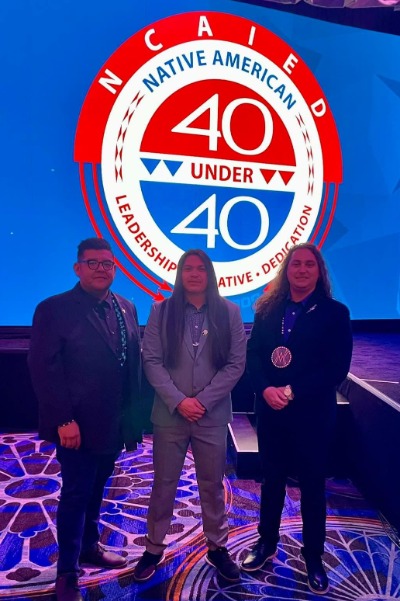
The California Nations Indian Gaming Association (CNIGA) said the failure of another attempt to legalize sports betting in California should be “a warning” against future attempts.
The two votes to legalize sports betting would have given tribes the exclusive right to offer sports betting in California. However, they were scrapped on Monday after tribes in the state strongly opposed the proposals outlined.
Eagle1 Acquisitions Corp, the group of backers of a proposal to legalize sports betting in California, made several changes to its ballot initiative in December to attract further tribal support.
The sports betting regulation and the Tribal Gaming Protection Act, introduced in October, would allow legal betting. If approved, the vote would have amended Article IV, Section 19 of the California Constitution. This gives tribes exclusive rights to offer retail and online betting.
However, these were rejected by the CNIGA. Following the withdrawal of the Tribal Gaming Protection Act and the Sports Betting Regulation and the Tribal Gaming Protection Act, CNIGA said the failure of the initiatives should serve as a warning against further attempts to legalize sports betting in California.
A CNIGA statement said: “We are pleased that, in the face of widespread tribal opposition, supporters of two initiatives have kept their word and withdrawn what we could only view as a cynical attempt to legalize sports betting and online betting in California. “
“These initiatives sought to use the tribes’ good names to clean up illegal offshore online gaming companies that had an appalling track record of misconduct.
“This failure should also serve as a warning to others dubiously attempting to enter the California gambling market. If you exploit tribes for your own gain, you’ll get nowhere.”
What did the California ballots propose?
While details of the Tribal Gaming Protection Act were sparse, the Sports Betting Regulation and Tribal Gaming Protection Act required tribes to place 15% of their adjusted sports betting gross gaming revenue (GGR) into a tribal betting revenue trust fund deposit.
The tribes would also commit to contributing 10% of their GGR to a California homelessness and mental health fund. Tribes would also have to work with sportsbooks that would act as providers.
Changes were made in December to bolster tribal support. The changes included allowing sports betting to be introduced from July 1, 2025, slightly earlier than the original September 2025.
Sports betting GGR contributions to the trust fund increased from 15% to 25%. Additionally, the requirement for personal online gambling registration for those outside a 10-mile radius of a casino should be eliminated after two years.
Push back from the CNIGA
The ballot papers were previously criticized by the CNIGA, with the group expressing disappointment that they were not contacted for consultation.
Back in October 2023, the CNIGA said: “The California Nations Indian Gaming Association is deeply disappointed that the sponsors of the two recently submitted initiatives did not first reach out to the state’s largest tribal gaming association for advice and input.”
“Instead, CNIGA and our member tribes were made aware of their existence when they were filed with the Attorney General today [27 October 2023].”
“Decisions about the future of tribal governments should be made by tribal governments. While the sponsors of these initiatives may believe they know what is best for the tribes, we encourage them to engage with Indian Country and ask rather than dictate.”
At the time, the filing of the proposed ballots came as a bit of a surprise due to late filing and the rejection of sports betting proposals by California voters in November 2022.
Earlier this month, the SBA, made up of operators such as DraftKings and FanDuel, also expressed opposition to the votes.
Explaining the coalition’s reasons for resistance, SBA spokesman Nathan Click said, “Without significant and broad tribal support, this initiative will fail and delay productive discussions for several years.”
“Furthermore, this initiative aims to prevent the market from reaching anywhere near its potential, to the detriment of everyone involved.”
A lack of tribal support is responsible for the failure of the initiatives
The main reason for the unsuccessful votes was the lack of tribal support as well as the general indifference to sports betting in California.
Two separate measures to legalize sports betting in the state in November 2022 failed. Tribal-backed Proposition 26 and commercially-backed Proposition 27 both lacked the required number of votes.
Brendan Bussman, managing partner at B Global Advisors, was not surprised by the failure of the new ballots. Bussmann pointed to the need for compromise if California is to one day have a legal sports betting market.
“You’re dealing with an environment where only 30% of people said they like sports betting,” Bussmann told iGB. “That won’t change in the short term.
“You have to find a compromise on the table. Arkansas, for example, or Florida, although I do not claim that they are ideal models.
“The tribes have made it clear that they don’t want this. They need to make sure the tribes are heard and listened to.”
Do Californians want online sports betting?
Interestingly, despite the market’s potential, there has never been strong public pressure to legalize sports betting.
The issue had taken hold in California throughout 2022, with a poll in February of that year showing some support for it.
In May, it was confirmed that a proposal to allow sports betting in the Golden State would appear on the ballot in November 2022. This should be done in parallel with another sports betting initiative supported by tribal gaming groups titled Tribal Sports Betting Act Initiative.
But Democrats in California recommended voters vote “no” on sports betting proposals. They did not support the tribal proposal, but supported a no vote on Proposition 27, which was supported by the operators.
Although both suggestions appeared on the November 2022 ballotthey were ultimately rejected by voters.







